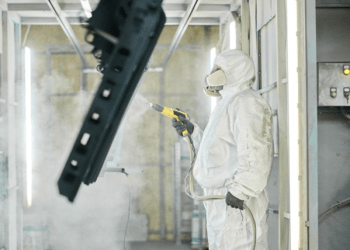When it comes to traveling with sensitive equipment or valuable items, choosing the right protective case can make all the difference. Not only do these cases shield your gear from physical damage, but they also provide peace of mind during transport.
Whether you’re a professional photographer, a tech enthusiast, or someone who frequently travels for work, the type of case you select can impact the longevity and safety of your equipment. There are numerous options on the market, each designed for specific needs and environments.
Understanding the features, materials, and designs of different case types helps you make an informed choice. In this post, we’ll explore some of the top case types that keep your gear safe on the move. From hard-shell solutions to specialized transport cases, there’s something for everyone.
Hard-Shell Cases
Hard-shell cases are designed to offer maximum protection for delicate or expensive items. They are typically made from durable materials like ABS plastic, polycarbonate, or aluminum, which provide resistance against impact, drops, and crushing. Many hard-shell cases feature reinforced corners and secure latching mechanisms, ensuring the contents remain intact during rough handling. These cases often include customizable foam interiors, allowing you to fit equipment snugly and prevent movement.
Hard-shell cases are versatile, suitable for electronics, cameras, musical instruments, and even sports equipment. One of their key advantages is their ability to withstand harsh environments, including moisture, dust, and extreme temperatures. Overall, a high-quality hard-shell case is a reliable investment for anyone who values safety and durability.
Pelican Cases
Pelican case have become synonymous with rugged, professional-grade protection. Known for their waterproof, crushproof, and dustproof construction, these cases are trusted by military personnel, photographers, and travelers alike. Many pelican cases come with customizable foam inserts, making it easy to secure items of various sizes and shapes. They also feature automatic pressure equalization valves, which prevent vacuum lock and make it easier to open the case after changes in altitude.
With reinforced handles and latches, pelican cases provide both strength and ease of use. Their durability ensures that even during heavy travel or extreme conditions, your equipment remains safe. Using a pelican case means you can transport gear confidently, knowing it’s protected by one of the most reliable cases on the market.
Soft Cases
Soft cases offer a lightweight and flexible alternative to hard-shell protection. Constructed from materials like nylon, polyester, or leather, these cases provide basic cushioning while being easy to carry. Many soft cases include padded interiors, compartments, and pockets, which help organize smaller items like cables, accessories, and personal electronics.
While they may not provide the same level of impact resistance as hard-shell options, soft cases excel in portability and comfort. They often feature adjustable straps or backpack-style designs, making them ideal for commuting or traveling on foot. Soft cases are popular among photographers, musicians, and students who need convenient access to their gear. Despite their lightweight design, many models still offer water-resistant features to protect against light rain or spills.
Rolling Cases
Rolling cases combine protection with convenience, particularly for heavy or bulky equipment. They often feature reinforced corners and durable exteriors, similar to hard-shell cases, but with the added benefit of wheels and telescopic handles. This design reduces strain on the user, making it easier to move gear through airports, train stations, or convention centers.
Rolling cases are popular among professionals carrying audiovisual equipment, musical instruments, or large cameras. Interior compartments are usually padded or customizable, ensuring that fragile items remain secure. Many rolling cases also include TSA-approved locks for added security during travel. By distributing weight more efficiently, rolling cases make transporting heavy gear less stressful and more efficient.
Flight Cases
Flight cases are specially designed for the airline and touring industries. Constructed with reinforced plywood, aluminum edges, and heavy-duty hardware, these cases are built to withstand repeated handling and transportation. Inside, foam inserts or modular compartments keep equipment organized and protected against vibration and shocks.
Flight cases are ideal for musical instruments, audio-visual gear, and sensitive electronics that need extra safeguarding during shipping. Their stackable design also makes them practical for storage in tight spaces or transport vehicles. Many flight cases include caster wheels and sturdy handles for easier maneuvering. The combination of durability, organization, and portability makes flight cases a top choice for professionals on the go.
Tool Cases
Tool cases are designed for both protection and organization of hand tools, power tools, and technical equipment. These cases often feature molded compartments, trays, and dividers that keep tools separated and easy to access. They are typically made from high-impact plastic or metal to withstand drops and rough handling on job sites. Some tool cases include lockable latches, adding a layer of security against theft or accidental opening.
Compact and portable, these cases allow technicians and DIY enthusiasts to carry essential tools efficiently. Many models are water-resistant, ensuring that tools remain protected in damp or challenging conditions. A well-organized tool case not only keeps your equipment safe but also saves time by having everything in its proper place.
Specialty Cases
Specialty cases are tailored to specific types of equipment or activities, such as camera drones, medical instruments, or scientific devices. These cases combine the protective features of hard-shell designs with highly customized interiors to suit unique shapes and requirements. Many specialty cases are shock-absorbing, waterproof, and airtight to ensure maximum safety for sensitive items. They often include additional compartments for accessories, manuals, or batteries, enhancing convenience and usability. Professionals in fields like healthcare, photography, and field research rely on specialty cases to transport delicate instruments without risk. Even in extreme travel scenarios, these cases maintain the integrity of their contents. Investing in a specialty case ensures that your gear is not only safe but also organized and ready for immediate use.
Conclusion
Choosing the right case can make a significant difference in how safely and efficiently you transport your gear. Whether you prefer hard-shell, soft, rolling, flight, tool, or specialty cases, each offers unique benefits for different needs. For those who require the highest level of protection, a pelican case remains a trusted option, combining durability with innovative design features.
Ultimately, the right case provides peace of mind, knowing your valuable equipment is shielded from damage, theft, and environmental hazards. Assess your travel habits, the fragility of your items, and your organizational needs to find the best solution. Protecting your gear properly ensures it remains functional and reliable, no matter where your journey takes you. Investing in quality cases today can save both time and money in the long run.












